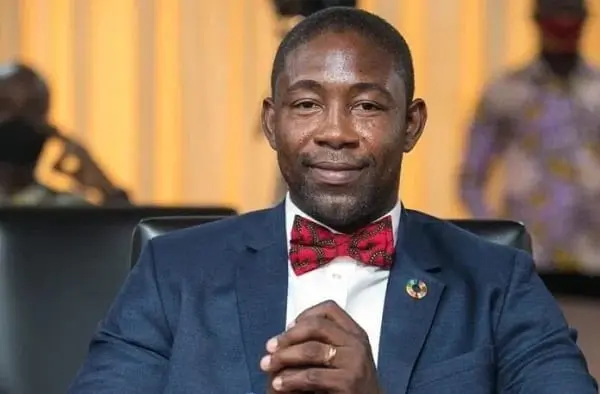There is an imminent doom in Ghana’s heath sector if the government fails to honor its co-financing obligation under the vaccine transition roadmap with the Global Alliance for Vaccines and Immunization (GAVI), supervised by the Ghana office of the United Nations International Children’s Emergency Fund (UNICEF).
This means Ghanaians must brace themselves for another outbreak of the six childhood killer diseases as the current Government has so far paid only a paltry $5 Million out of about $30 Million for the procurement of vaccines for use in the country.
The Government of Ghana in 2022 failed to meet 100 percent of its co-financing obligations and only paid in the first quarter of 2023 leading to the shortage of vaccines and outbreak of measles across the country.
Chief of Health and Nutrition at UNICEF, Dr. Juan Manuel Dewez, said the Fund continues to engage government over the payment as more delays would lead to a possible shortage of vaccines and massive outbreak across the country.
Speaking exclusively to The SPYder on the sidelines of a National Stakeholders Engagement on Health and Health-Related Sustainable Development Goals (HHSDG), Dr. Dewez noted that Ghana is moving out of financing from GAVI, indicating that the country’s percentage in the shared financing arrangement will increase in 2030 with the Government paying for most vaccines that come into the country.
“We procure most of the vaccines in the country. And we are working with the government and GAVI – Global Alliance for improved vaccination. So we are following what we call the vaccine transition roadmap, which is Ghana moving out from the financing from GAVI, which means that every year the share of financing for vaccines that Ghana will have to pay will increase by 2030. Most of the vaccines will be paid by the government of Ghana. So this is an agreed roadmap that has been signed between the governments and GAVI,” he stated.
He further revealed that the government of Ghana has failed to honor full payment for vaccines for 2024 after paying just $5Million out of about $30Million required for the procurement of the vaccines.
Dr. Juan Manuel Dewez cautioned that the government’s continues delay in fulfilling its part of the bargain would lead to vaccine shortages and outbreaks, which is not in the interest of anyone.
“And under that roadmap, we are expecting payments for vaccines every year. So for 2024, we were expecting around $30 million but there have been delays in the payment. And so far, we’ve received only $5 million,” he revealed.
He however assured of continues engagement with government over the payment to avert the shortage and outbreak of diseases.
“So now we are in conversation with them, we are urging them to accelerate that payment. Because the risk of having delayed in vaccine payment is that there will be stock outs which can lead to outbreaks of diseases and we absolutely want to avoid that,” he warned.
Aunty Vida Anopansuo- a lactating mother at Adenta Newsite, remarked in an interview with our reporters that “I am worried to hear about government’s inability to pay for these vaccines, my son will be six months and due for another vaccination.”
She urged the government to prioritize the health of children as an outbreak of the six killer diseases will be a massive disaster on the hands of health professionals in the country.
National Coordinator of the Ghana NCD Alliance – Labram Musah, lamented the neglect of important health provisions by government and serves notice that Civil Society Organizations in Health would have to start mounting severe pressure on the government to effect payment so as to avoid any form of disaster among the populace.
“We indeed call on the Ministry of Health to quickly facilitate to ensure that we are able to pay, just so we get the vaccines to protect our children. I mean, this is very critical because we already have a deplorable situation that we are currently facing in terms of achieving the Sustainable Development Goals. We call on the government to as a matter of urgency pay up to prevent any shortage,” he noted.
National Stakeholders Engagement on Health and Health-Related Sustainable Development Goals (HHSDG) brought together stakeholders from government, development partners, civil society organizations, academia and the media for a concerted effort to accelerate progress towards achieving the SDGs related to health.
By Derick Botsyoe || ghananewsonline.com.gh

